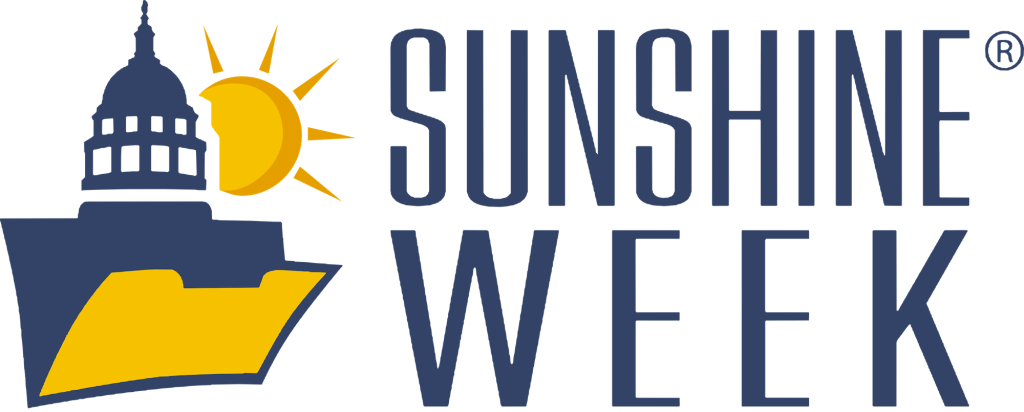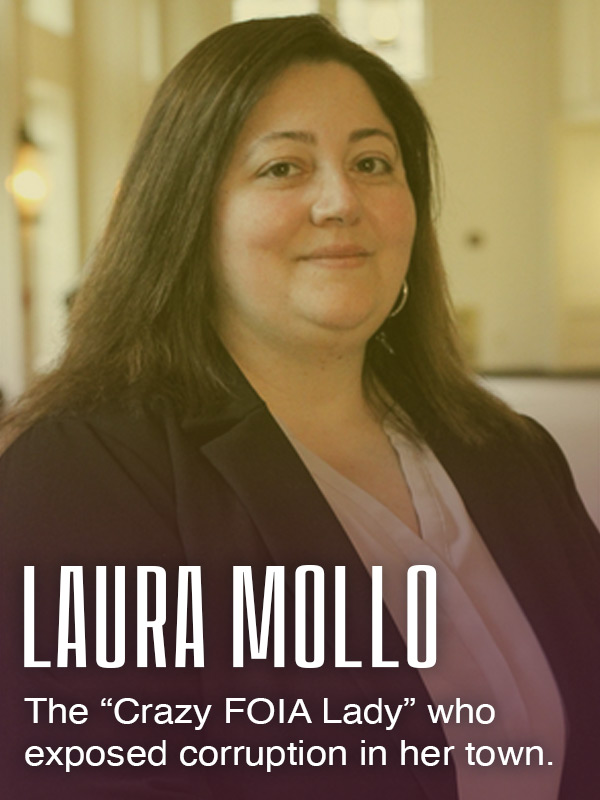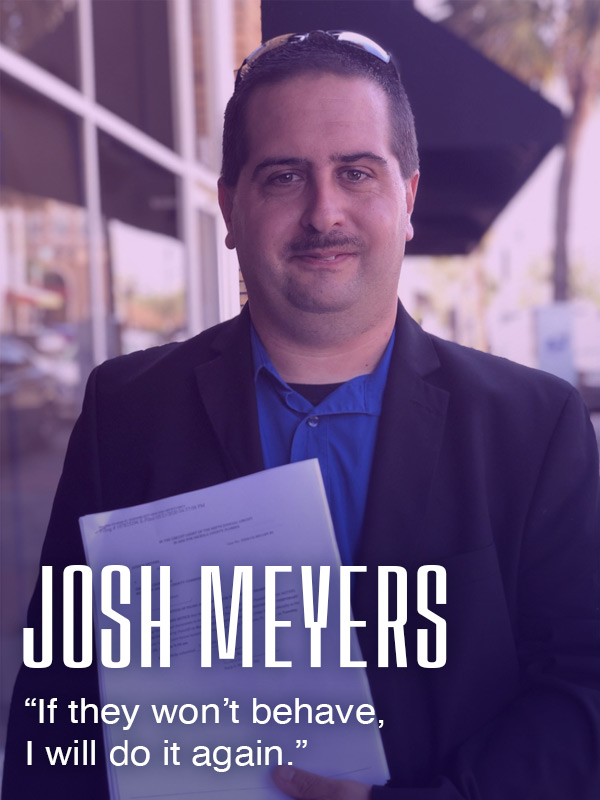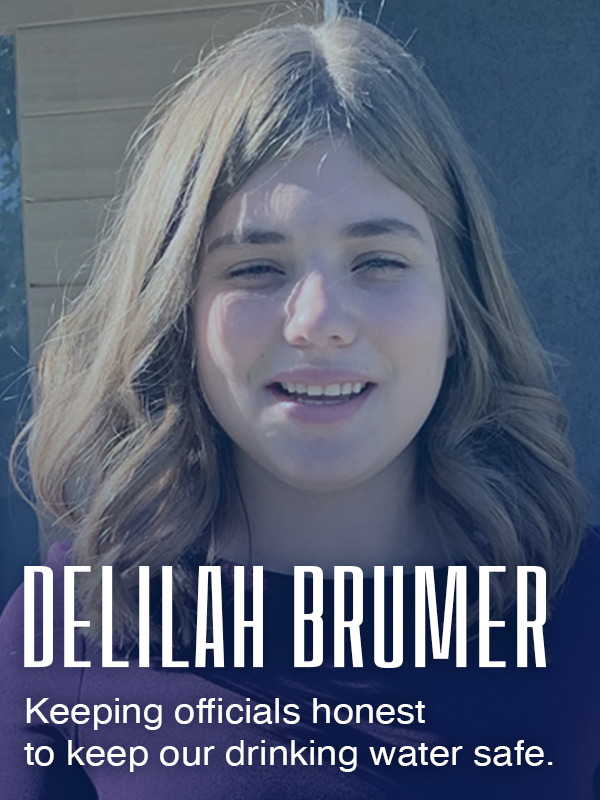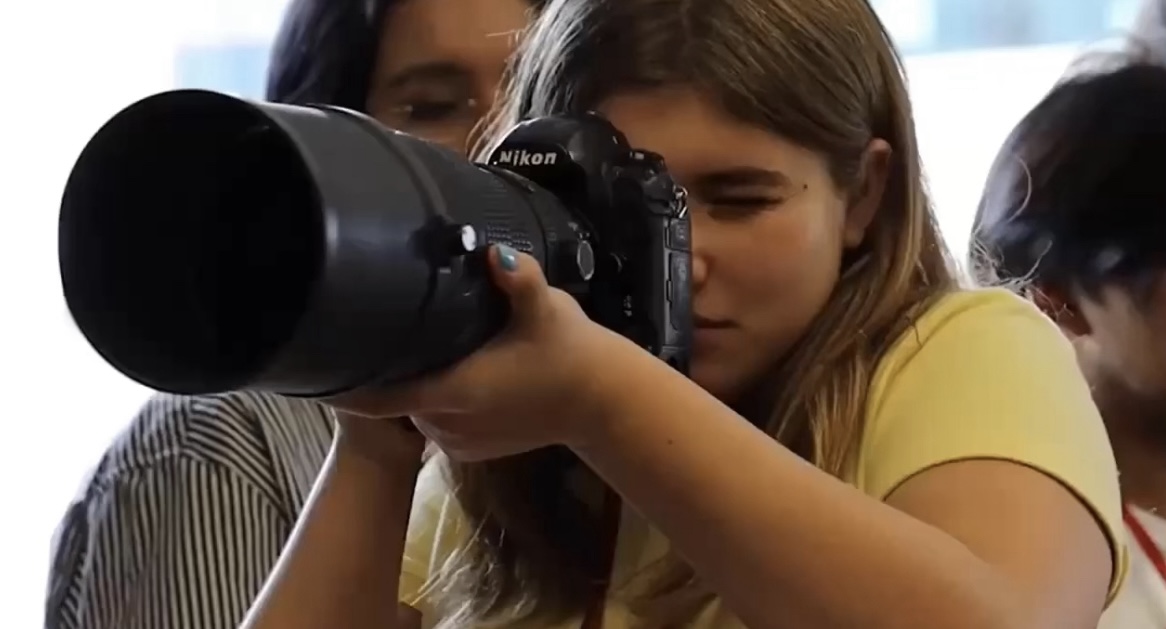
Our Right to Know: Delilah Brumer
In March 2023, I was the editor-in-chief of The Pearl Post, the student newspaper of Daniel Pearl Magnet High School in Lake Balboa, California. Online Editor-in-Chief Alan Ruiz and I published an article headlined “Six water fountains shut off due to high lead levels.” Our reporting, which involved a California Public Records Act request, led our school district to change its water safety standards.
The article was spurred by a tip that the reason several of our school water fountains had been shut off for weeks was because they tested for dangerous levels of lead—and that the Los Angeles Unified School District administration didn’t want anyone to know.
When we received the tip, we immediately started doing research. As we worked to find information about lead in our school’s water, we found a page on LAUSD’s website claiming the district had a public database of lead testing information. However, when we clicked on the database, the link was broken. We then emailed our district’s public information officer, hoping he could direct us to an updated link or find out if the link would be fixed. Instead, he told us that he could not provide any information.
We filed a California Public Records Act request immediately after that response and kept researching. We also conducted interviews with students, many of whom rely on water fountains throughout the school day. At a Title I public high school with a majority-minority enrollment, these shut offs were clearly having significant effects.
While we waited on a response to our CPRA request, we attempted to interview school and district officials. All of them, including our principal, ignored or declined interview requests. We also found a 2017 California law requiring school districts to notify parents about lead found in school drinking water at a rate of 15 parts per billion or higher.
We began to write our article, while still waiting on a response to our CPRA request. In early March, we received the information we had asked for — 66 pages of lead testing data from across the district. The data showed that at our school, several of the water fountains had lead levels significantly above the 15 parts per billion threshold. One even tested for lead at 65.3 parts per billion.
We also found, through our CPRA request, that since 2018, more than 500 water fountains across the school district have tested for lead at a rate of 15 parts per billion or higher.
Shortly after receiving the records, we published our article. We are proud that our work did exactly what student reporting should do: hold those in power accountable and increase our community’s awareness of school issues. We couldn’t have done this without the state and federal open government laws that protect the public’s right to access information.
The Pearl Post, 3/20/2023
Six water fountains shut off due to high lead levels
The Pearl Post, 10/4/2023
Lead-contaminated water fountains still closed after almost 10 months
2023 Society of Environmental Journalists, Nina Mason Pulliam Award for Outstanding Environmental Reporting, Third Honorable Mention.
Judges’ comments: “What an impressive investigative story by high school journalists who dealt with many school officials attempting to avoid disclosing the high lead levels in many Los Angeles school water fountains. These students deserve this honorable mention for refusing to give up. They persevered and wrote a story that had a deep impact on their audience. They exhibited the tenacity of professional journalists. It wasn’t lost on these judges that these journalists attend a school named for noted journalist Daniel Pearl.”
